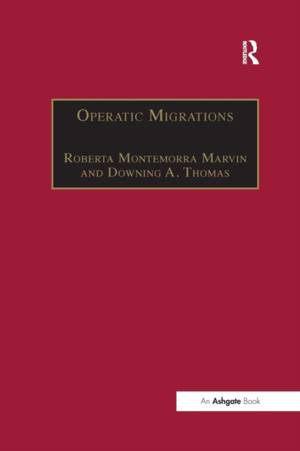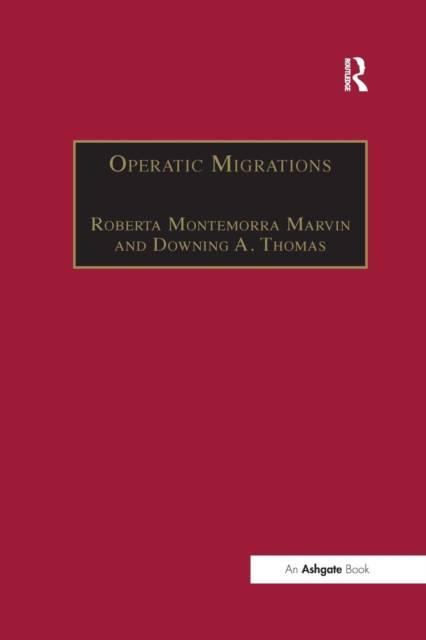
- Afhalen na 1 uur in een winkel met voorraad
- Gratis thuislevering in België vanaf € 30
- Ruim aanbod met 7 miljoen producten
- Afhalen na 1 uur in een winkel met voorraad
- Gratis thuislevering in België vanaf € 30
- Ruim aanbod met 7 miljoen producten
Zoeken
Operatic Migrations
Transforming Works and Crossing Boundaries
Roberta Montemorra Marvin
Paperback | Engels
€ 102,45
+ 204 punten
Uitvoering
Omschrijving
This volume takes an interdisciplinary approach to studying a wide range of subjects associated with the creation, performance and reception of 'opera' in varying social and historical contexts from the eighteenth to the twentieth centuries. Each essay addresses migrations between genres, cultures, literary and musical works, modes of expression, media of presentation and aesthetics. Although the directions the contributions take are diverse, they converge in significant ways, particularly with the rebuttal of the notion of the singular nature of the operatic work. The volume strongly asserts that works are meaningfully transformed by the manifold circumstances of their creation and reception, and that these circumstances have an impact on the life of those works in their many transformations and on a given audience's experience of them. Topics covered include transformations of literary sources and their migration into the operatic genre; works that move across geographical and social boundaries into different cultural contexts; movements between media and/or genre as well as alterations through interpretation and performance of the composer's creation; the translation of spoken theatre to lyric theatre; the theoretical issues contingent on the rendering of 'speech' into 'song'; and the transforming effects of aesthetic considerations as they bear on opera. Crossing over disciplinary boundaries between music, literary studies, history, cultural studies and art history, the volume enriches our knowledge and understanding of the operatic experience and the works. The book will therefore appeal to those working in the field of music, literary and cultural studies, and to those with a particular interest in opera and musical theatre.
Specificaties
Betrokkenen
- Auteur(s):
- Uitgeverij:
Inhoud
- Aantal bladzijden:
- 296
- Taal:
- Engels
Eigenschappen
- Productcode (EAN):
- 9781138254985
- Verschijningsdatum:
- 11/11/2016
- Uitvoering:
- Paperback
- Formaat:
- Trade paperback (VS)
- Afmetingen:
- 156 mm x 234 mm
- Gewicht:
- 417 g

Alleen bij Standaard Boekhandel
+ 204 punten op je klantenkaart van Standaard Boekhandel
Beoordelingen
We publiceren alleen reviews die voldoen aan de voorwaarden voor reviews. Bekijk onze voorwaarden voor reviews.











